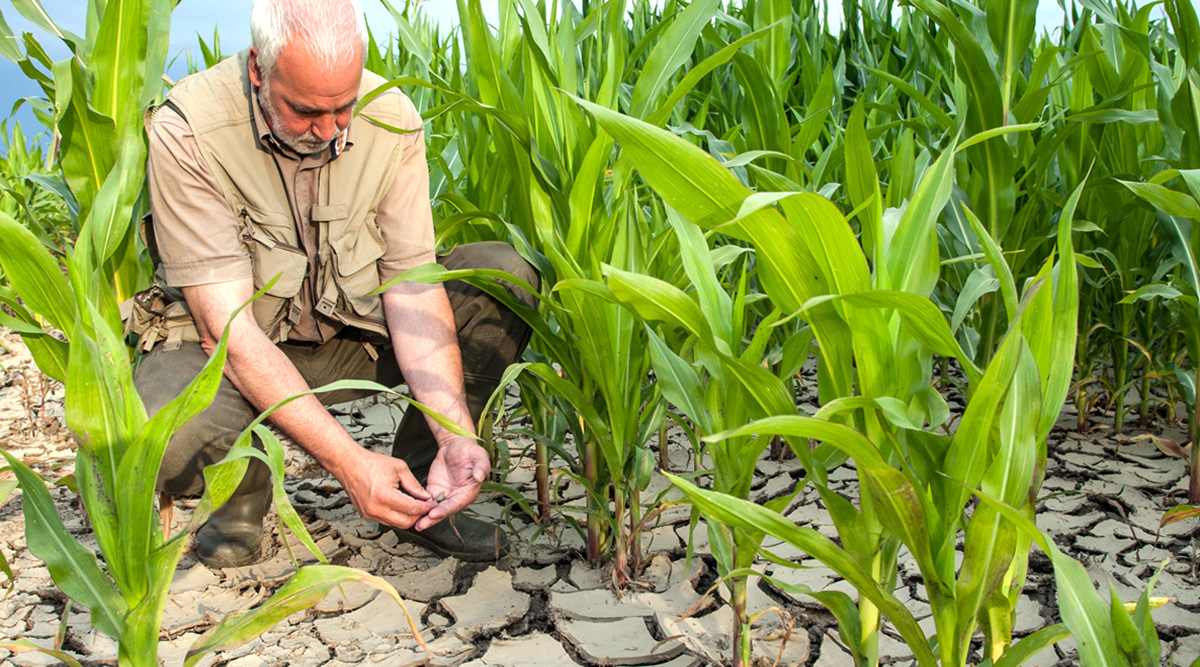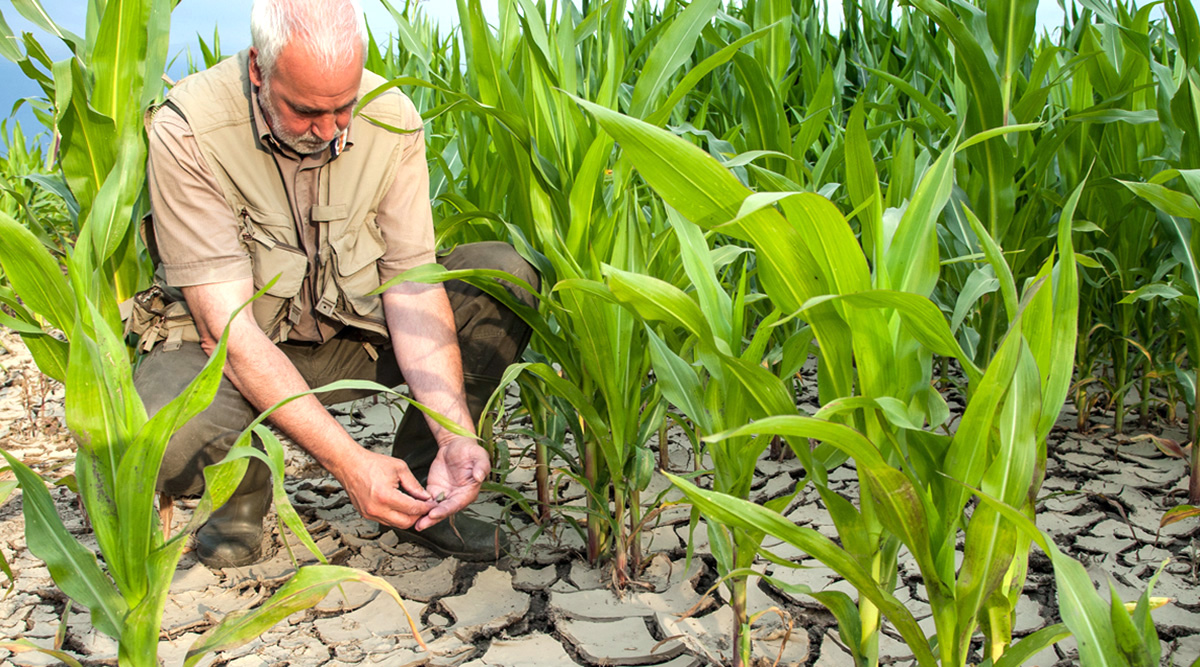Improving Ag in the Face of Climate Change
The challenge of agricultural waste and inefficiency includes an overlay of concern about environmental sustainability and, more extremely, climate change.

March 2022
Volume 76, No. 2
As with everything else that relates to economic production these days, the challenge of agricultural waste and inefficiency includes an overlay of concern about environmental sustainability and, more extremely, climate change.
“We’ve got to wake up as a society,” says John Purcell, president and CEO of Unfold, an indoor-farming startup. “This is not a theoretical conversation; it’s real. We have billion-dollar weather events this decade that we didn’t see in previous decades. We see pests we haven’t seen before because of warmer winters. There have been huge shifts in extremes: too much water or too little water, high and low temperatures.
“It’s absolutely become a risk-mitigation game, and climate change has introduced a whole suite of risks that are unpredictable and in some ways beyond our control.”
In Brazil, for instance, water conservation “wasn’t a big issue for farmers until a couple of years ago,” says Gustavo Porpino, an agricultural marketing specialist for the Brazilian government. “But then La Nina [weather events] and climate change made them take it more seriously.”
Ku McMahan, senior team lead at the U.S. Agency for International Development (USAID), notes, “Because of climate change, the times of year for planting are different. We know weather patterns and drought forecasts, but farmers in a traditional system don’t know that.” So Western governments are helping farmers in developing nations with technologies that gather and communicate more data about basic inputs that farmers around the world have. “Our job is to help farmers better use those and also protect them from the effects of drought and climate change,” continues McMahan.
Additionally, technologists are developing crops that tolerate a wider range of climatic conditions and provide more ways to control pests. Thwarting climate change, in fact, is providing a strong narrative for startups such as Endobiome, which finds ways for microbes to make crops more productive without synthetic fertilizers.
“Nitrogen fertilizers are the No. 1 cause of the increase in nitrous oxide in the atmosphere,” says Michael LaMontagne, founder of Endobiome. “It’s a highly potent, heat-trapping gas, and that contributes substantially to climate change.” His company is working on biofertilizers that could create “a 20% increase in yield or allow a grower to decrease the amount of fertilizer that’s applied while maintaining yield.”
For an in-depth look at how in research and technology are being used to reduce postharvest food losses while facing increasingly unstable climatic and economic conditions—see the March 2022 issue of Food Technology.
Digital Exclusives

10 Food Trend Predictions for 2022
The editors at Food Technology magazine, published by the Institute of Food Technologists (IFT), have announced their predictions for the hottest food trends for 2022.
More From Food Technology

How to Achieve EPR-Forward Packaging
In this two-part series, the author explores the history of Extended Producer Responsibility (EPR), what is needed to help EPR succeed, and how brands can best prepare for EPR.

Production Capacity Expands for Food to Fight Malnutrition
Production capacity for ready-to-use therapeutic food Plumpy’Nut at Edesia expands thanks to a Bezos family donation.

Future Food-Tech 2024 Tackles Transformation, Underscores Collaboration
Mission-driven Future Food-Tech exhibitors and conference presenters showcased innovative, transformative ingredients and technologies and emphasized the importance of collaboration in addressing food system challenges.

Whipping Up a Bright New Idea
A profile of whipped cream category innovator Whipnotic.

Keeping the ESG Promise
An infographic describing food and beverage companies’ outlooks regarding ESG initiatives.
Recent Brain Food

A New Day at the FDA
IFT weighs in on the agency’s future in the wake of the Reagan-Udall Report and FDA Commissioner Califf’s response.
Members Say IFT Offers Everything You Need to Prepare for an Uncertain Future
Learn how IFT boosts connections, efficiencies, and inspiration for its members.

More on the FDA's Food Traceability Final Rule
In a new white paper, our experts examine the FDA’s Food Traceability Final Rule implications—and its novel concepts first proposed by IFT.
Job Satisfaction in the Science of Food is High but Hindered by Pain Points
IFT’s 2022 Compensation and Career Path Report breaks it down.


